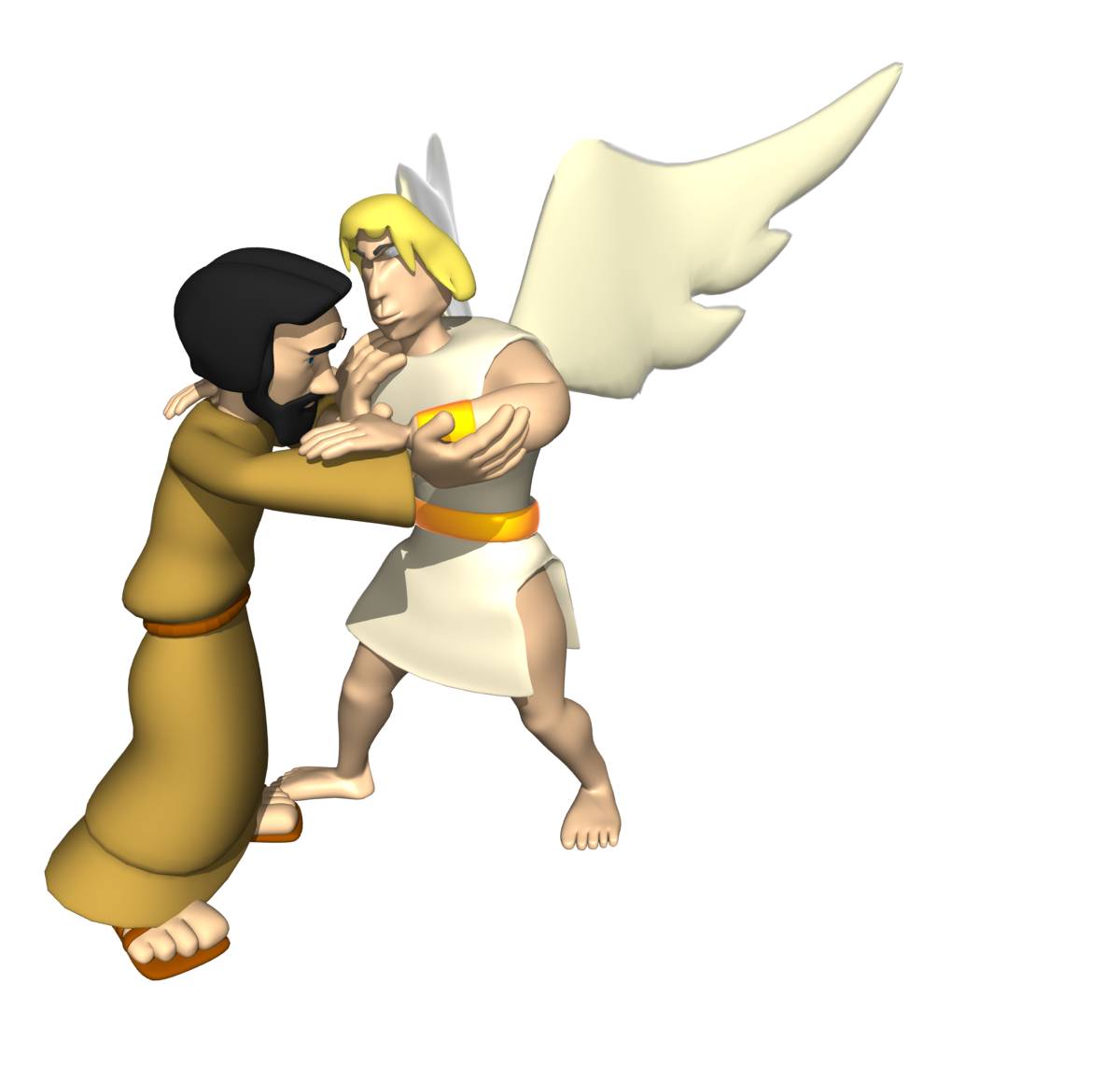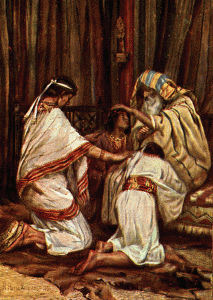With whom did Jacob wrestle—a man or Elohim? If with Elohim, the Father or the Son? The Jewish sages say one thing, while Christian biblical experts say something else. What does Scripture actually say? This will be a faith-confirming, gospel supporting read!
Genesis 32:24–32, Jacob Wrestling With the Messenger of YHVH. In verse 24 we read,
And Jacob was left alone; and there wrestled with a man [Heb. iysh] or heavenly messenger [i.e. Heb malak]. (KJV, see Hosea 12:4)
In the following passages, we see that this man was Elohim.
You have power with Elohim and with men, and have prevailed. (verse 28, based on the KJV)
… for you have striven with the Divine [Elohim] and with man and have overcome. (verse 28, The ArtScroll Stone Edition Tanach and Chumash)
Then Jacob says that he has “seen [Elohim] face to face” (KJV, CJB and The Soncino Edition Pentateuch, Second Edition). The two standard Orthodox Jewish versions of the Torah, The ArtScroll Stone Edition Tanach and The ArtScroll Stone Edition Chumash, and Samson Raphael Hirsch’s Torah commentary The Pentateuch (by Judaica Press) all read, “For I have seen the Divine face to face.” Here they have translated the Hebrew word Elohim as the Divine (Heb. Elohim panim).
Which translation of the word Elohim is the correct one? Before resorting to human sources to solve this dilemma, does the Word of Elohim itself interpret this passage for us giving it clear light? Most assuredly so. In Hosea 12:2-5 we read,
[YHVH] hath also a controversy with Judah, and will punish Jacob according to his ways; according to his doings will he reward him. He took his brother by the heel in the womb, and by his strength he had strove with [Elohim]. He strove with an angel [Heb malak or heavenly messenger in many instances referring to YHVH himself, as noted elsewhere in this work] and prevailed: he wept, and made supplication to him; he found him in Beth-El, and there he spoke with us; and [YHVH Elohim] of hosts; [YHVH] is his name. (based on the KJV)
The Stone Edition Tanach renders this passage as follows (starting in verse four):
In the womb he seized his brother’s heal, and with his strength he struggled with [an angel of] God; he struggled with an angel and prevailed; [the angel] wept and beseeched him: ‘In Beth-el He will find us and there He will speak with us.’ HASHEM is the God of Legions; HASHEM is His remembrance. (bracketed supplied word are in the original)
So which translation is correct? The first one indicates Jacob was wrestling with a Heavenly Messenger who was none other than YHVH Elohim, while the second translation is cast in such a light as to imply that Jacob was wrestling with merely an angel.
Does the word Elohim mean the Divine? It is interesting to note that in the Authorised Version the word Elohim appears 2606 times in the Tanakh. It is translated as God 2346 times, god 244 times and several other words less than five times each (e.g. judge, goddess, great, mighty, angels). As in all cases with a word which can have several meanings, the context of the Scripture passage will determine its meaning and its subsequent translation from the original language into English. The word divine was not Continue reading




